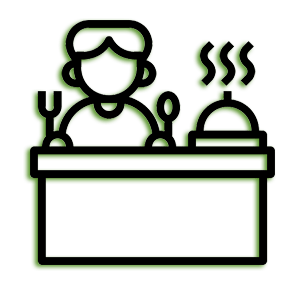
10 Oct BINGE EATING DISORDER: ARE YOU AT RISK?
You’re alone in your house, and you wander into the kitchen and open the pantry. You’re greeted with bags of potato chips, pretzels, popcorn, crackers, and candy. You start with the pretzels and eat the whole bag. You know you’ve already gone overboard, but you go back for more. Suddenly it feels like you can’t stop even if you wanted to. You take a breather. You’re uncomfortably full to the point where you feel like you can’t move.
You just experienced a binge.
Binge eating disorder affects about 5 percent of women and 4 percent of men. Binging, when it becomes a habit, is associated with weight gain and puts you at risk for other diseases, like metabolic syndrome and diabetes.
We’ve all overdosed on food on some occasions Thanksgiving, Christmas, or a wedding but one incident doesn’t necessarily mean you have a food addiction. It becomes a problem when it’s a habit and you feel like you aren’t in control. If you frequently experience the following, it’s time to talk to a CMWL medical professional:
If you continue to eat even after you’re full and often consume large portions of food in one sitting.
If you feel like you can’t stop eating once you start.
You eat very quickly.
You eat until you’re uncomfortably full, excessively, even when you’re not hungry.
You eat alone because you’re embarrassed about the amount of food you’re eating.
You feel depressed, guilty, or disgusted with yourself after an episode.
You can’t sleep without eating the leftovers in the house.
Who is at risk?
Women are slightly more at risk than men, and those who are overweight, depressed, feel anxious, or have type 2 diabetes are more likely to experience binge eating temptations.
Additionally, a recent study published in the journal Obesity found male military veterans are more likely to develop BED than female veterans.
What should I do if I think I have BED?
Make an appointment with a Center for Medical Weight Loss physician. He or she will be able to provide counseling to help you break your food addiction. In the meantime, here are some quick tricks to help you battle the binge:
Split meals: When you eat out, share an entre with a friend or family member. Right off the bat, you are forced to cut your meal in half. If there’s nothing in front of you to eat, you can’t overdo it. If no one is up for splitting a meal, ask the waiter to split the meal before he brings it to the table.
Clear your cabinets: Spend a day going through your pantry, and get rid of your trigger foods. If they are out of sight, they are out of mind. If you can’t resist cookies, get them out of the house. This doesn’t mean you can never eat a cookie again. It just means you should save them for special occasions.
Slow down: When you eat too fast, your body doesn’t recognize when it’s full. When you slow down, you will feel full naturally. Try putting your utensil down between each bite. It may seem annoying at first, but it will significantly slow down your pace. Eventually, it will be natural for you to eat slowly.
Ditch the leftovers: Cook what you will eat. This way, if you find yourself wandering in the kitchen late at night, you won’t succumb to fourth meal syndrome. After dinner, it’s best to consider the kitchen closed.


